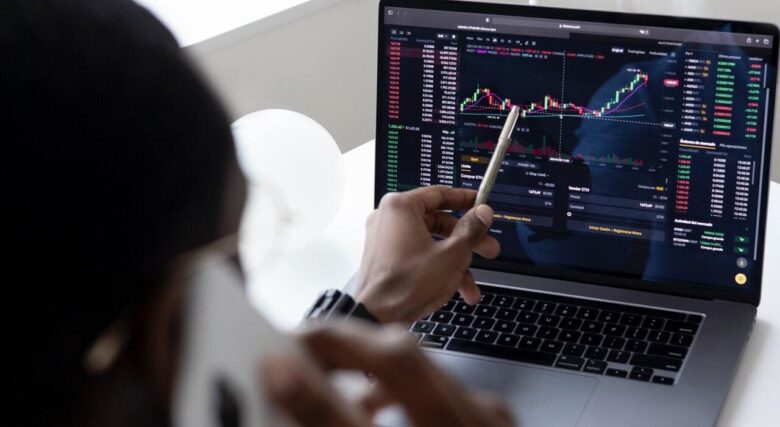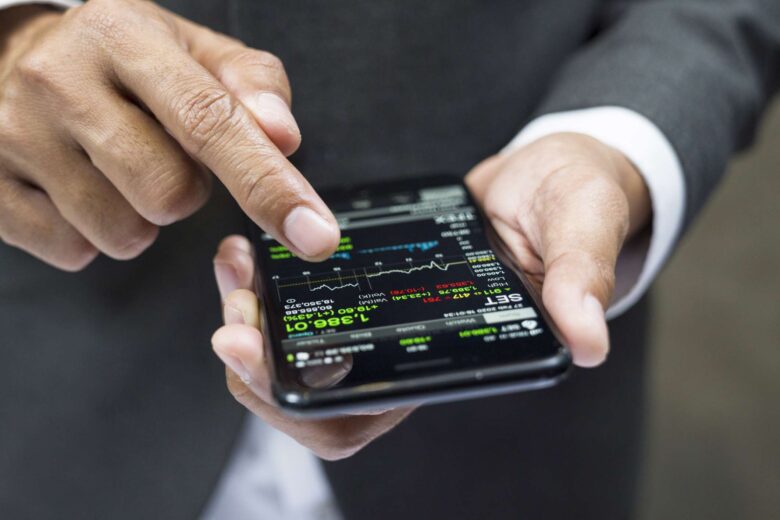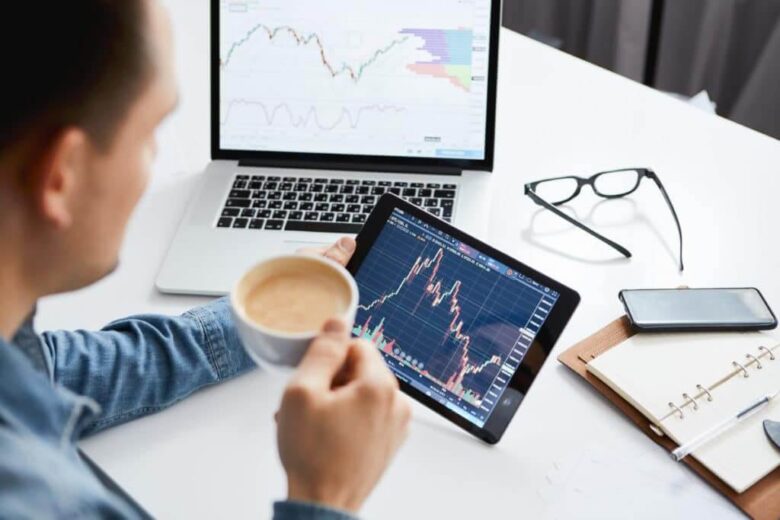The mobile device space has seen a lot of dramatic improvement in the last decade. In that time, mobile devices have become everyday devices that can be used for virtually any activity. One such activity is financial trading. With the general improvement in processing capacity and falling entry prices, traders can now use mobile devices to make trades, manage investments and catch up with the latest financial news while on the move.
Furthermore, as social (copy) trading becomes popular, casual investors will not need to conduct technical analysis on their mobile trading software. They simply need to copy trades made by professional traders with good performance records. Brokers such as IQCent offer a mobile trading platform that traders can use to trade on the go. The app supports copy trading and provides excellent features for traders who want to set up trades independently.
This trend has ushered in the rise of mobile trading. Forex brokers have caught up with the trend and now offer trading apps for their clients using smartphones and tablets. These apps can be downloaded from the broker’s website, the Google Play store, or the Apple store.

Source: guardian.ng
Contents
Mobile trading vs traditional trading
In the early days of mobile trading, there was a clear distinction between the trading experience on a mobile phone and the experience on a desktop computer or laptop. Early apps generally fell into two categories: the ones that tried to replicate the desktop experience and ended up becoming cluttered or those with limited functionality.
However, this landscape has changed with the introduction of trading apps explicitly designed for mobile phones and tablets. These apps come with a streamlined interface to allow traders to get all the basic functionality they need without cluttering the small screens. Some trading apps allow users to configure the trading interface to suit their needs and preferences.
With the emergence of this advanced trading software, there is very little difference between mobile trading and traditional trading. In most cases, all the functionalities available on a desktop trading application are also available on the trading app. This feature has led many traders, including professionals, to shift to mobile trading.
However, the relatively smaller screen may be uncomfortable for traders who want to conduct an in-depth analysis of an asset price history before making trades. Some traders also consider trading with a desktop computer more professional.
Pros and cons of mobile trading
While the trend of trading forex and other tradable instruments on mobile phones continues to rise, mobile trading has pros and cons.

Source: investopedia.com
Advantages
The main benefit of mobile trading for traders is accessibility. Mobile traders do not need to be at work or home to trade. With mobile phones, they can make trades and manage their investment, whether at work, at home, or vacation. This increased flexibility makes it easy for busy individuals to trade.
Another advantage for mobile traders is the instant execution of market signals. While some traders still take time to analyze markets and set up traders, some rely on trading signals and tips from experienced traders and online software. Since they always have their phone on them, they can quickly implement those signals without needing to find their computer.
Disadvantages
Mobile trading has its share of risks. Internet connection is a significant factor since most wireless networks do not offer stable connectivity. A lag in network connection can be problematic for a trader trying to analyze markets and make trades in real time.
Furthermore, the small-screen real estate offered by an average mobile phone may make technical analysis difficult for some traders. This can lead to actions that may not be correct.
Lastly, losing a mobile phone due to carelessness or theft can compromise the security of a mobile trader’s funds.

Source: financebrokerage.com
What does the future hold?
Despite its negatives, mobile trading is on an upward trend, and there is no end in sight to its momentum. The availability of trading apps on mobile devices contributes to the increase in traders. These new traders can download the training app, open an account and begin trading all from the convenience of their mobile phones. As such, they do not need to insure additional costs besides the initial deposit they use to fund their account.
Strategies and Tips
One crucial strategy in mobile trading is to stay informed and up-to-date with market news and analysis. These apps often provide real-time market data, news feeds, and charting tools. Traders should utilize these resources to monitor market trends, identify potential opportunities, and make informed decisions.
Another important tip is to practice proper risk management. Mobile trading can be convenient, but it can also lead to impulsive and emotional decisions. Setting stop-loss orders and adhering to predetermined risk levels can help traders protect their capital and avoid significant losses.
Furthermore, mobile traders should be mindful of their internet connection and battery life. It is crucial to have a reliable and secure internet connection to ensure the smooth execution of trades. Additionally, keeping a backup power source, such as a portable charger, can prevent unexpected disruptions during critical moments.
Additionally, the process can be enhanced by utilizing various technical indicators and charting tools available in apps. These tools can help traders analyze price patterns, identify support and resistance levels, and make more accurate predictions.
Lastly, it is vital for mobile traders to continuously educate themselves and stay updated on market trends, strategies, and new technologies. Participating in online forums, attending webinars, and following reputable financial sources can provide valuable insights and help traders improve their skills.

Source: fxtradingrevolution.com
Conclusion
Mobile trading is one of the trends that has gained mainstream appeal. Its ease of use, accessibility, and low-cost requirement make it an excellent choice for beginner, casual, and professional traders. However, mobile traders must know the risks and follow best practices to secure their trading funds.
